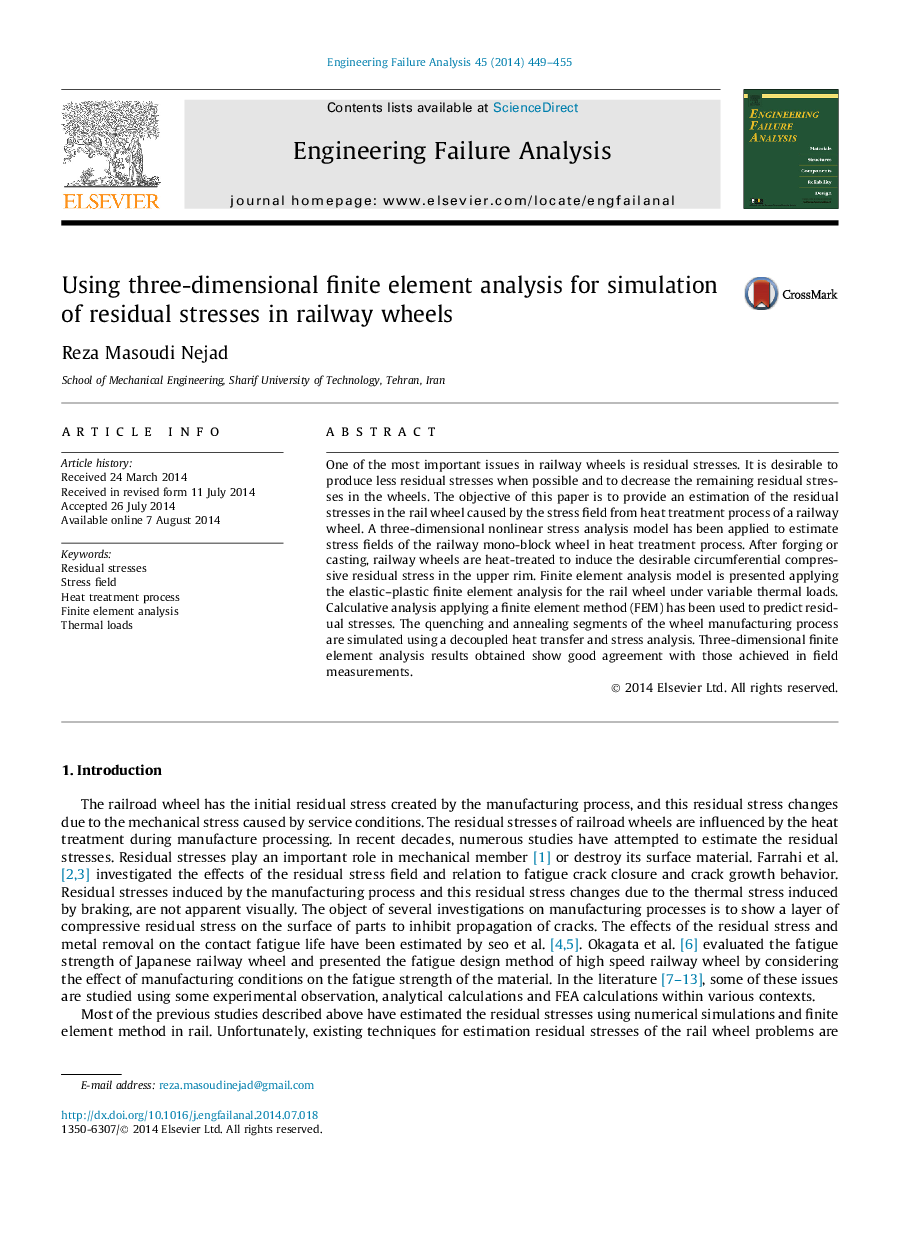| Article ID | Journal | Published Year | Pages | File Type |
|---|---|---|---|---|
| 769629 | Engineering Failure Analysis | 2014 | 7 Pages |
•This paper provides a method for estimation of residual stress under variable thermal loads.•A 3-D non-linear finite element model has been applied to estimate the residual stresses.•The quenching and annealing segments of the wheel manufacturing process are simulated.•The small variations in input parameters can cause a larger variation of the residual stresses.
One of the most important issues in railway wheels is residual stresses. It is desirable to produce less residual stresses when possible and to decrease the remaining residual stresses in the wheels. The objective of this paper is to provide an estimation of the residual stresses in the rail wheel caused by the stress field from heat treatment process of a railway wheel. A three-dimensional nonlinear stress analysis model has been applied to estimate stress fields of the railway mono-block wheel in heat treatment process. After forging or casting, railway wheels are heat-treated to induce the desirable circumferential compressive residual stress in the upper rim. Finite element analysis model is presented applying the elastic–plastic finite element analysis for the rail wheel under variable thermal loads. Calculative analysis applying a finite element method (FEM) has been used to predict residual stresses. The quenching and annealing segments of the wheel manufacturing process are simulated using a decoupled heat transfer and stress analysis. Three-dimensional finite element analysis results obtained show good agreement with those achieved in field measurements.
